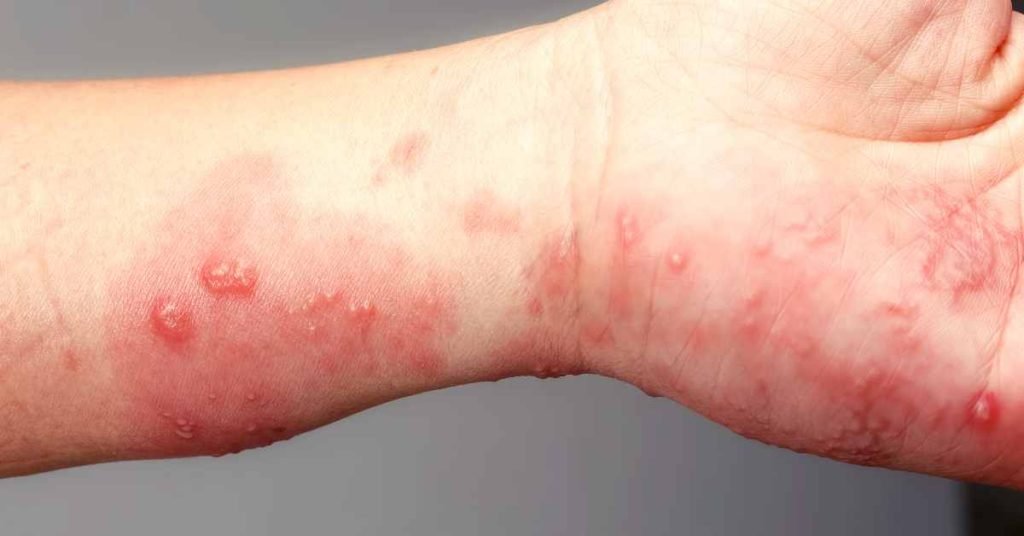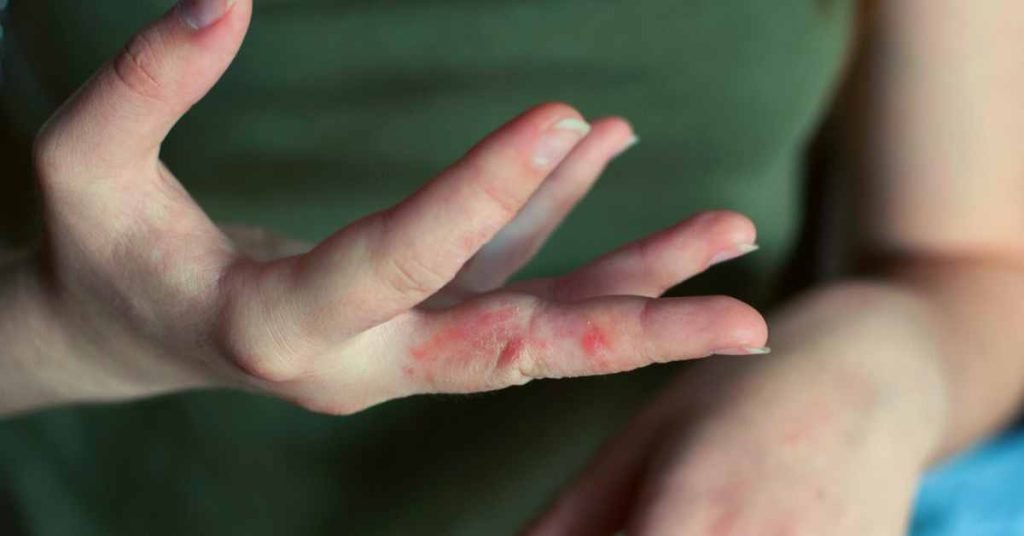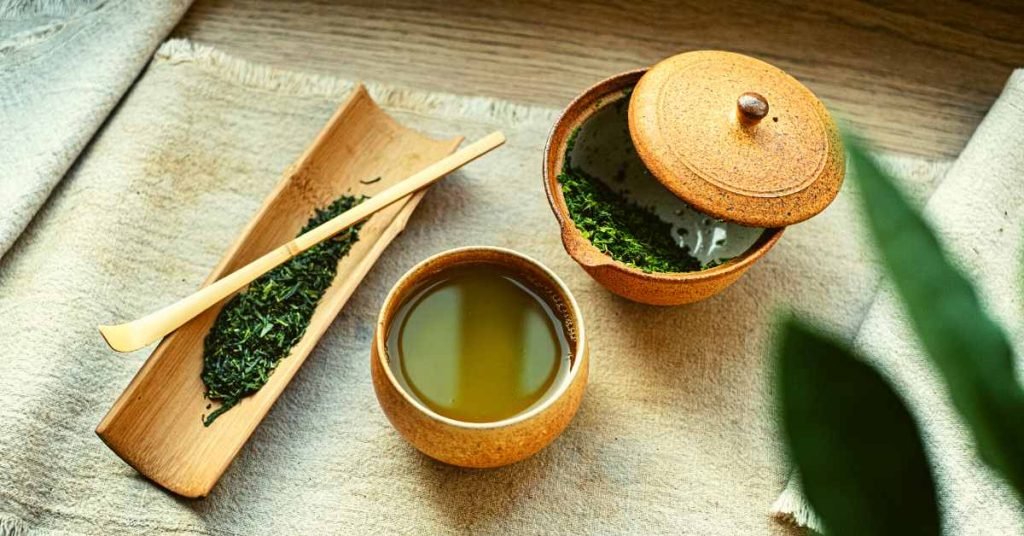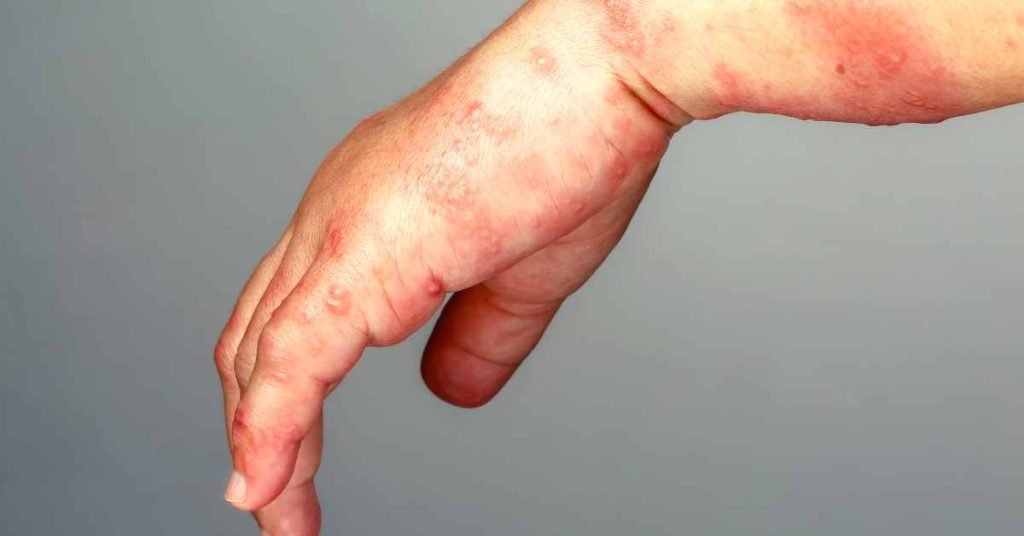Scabies, a highly contagious skin infestation caused by the Sarcoptes scabiei mite, can cause intense itching and discomfort.
Traditional treatments for scabies typically involve prescription medications, but there’s growing interest in exploring natural remedies.
With its diverse types and healing properties, tea is gaining attention for its potential role in managing scabies symptoms. In this article, we delve into the various types of tea, their properties, and ways to apply them as potential treatments for scabies.
Understanding Scabies

Caused by the microscopic mite, scabies infest mostly the upper skin layer, laying eggs and causing an allergic reaction that results in intense itching.
Common symptoms include small red bumps, blisters, and thin, thread-like burrow lines. Scabies are highly contagious and spread through close personal contact.
Types of Tea and Their Properties
Neem Tea
Neem tea, derived from the leaves of the neem tree (Azadirachta indica), has been traditionally used in Ayurveda for its antibacterial, antifungal, and anti-inflammatory properties. Neem contains compounds like azadirachtin and nimbidin, which may have insecticidal properties, making neem tea a potential candidate for managing scabies.
Tea Tree Oil Tea
While not a traditional tea, tea tree oil, extracted from the leaves of the Melaleuca alternifolia tree, has potent antimicrobial properties. It is often used topically to treat various skin conditions, including scabies. Infusing tea tree oil into a warm tea or diluting it for topical application may offer relief from scabies symptoms.
Turmeric Tea

Turmeric tea, made from the roots of the Curcuma longa plant, contains curcumin, a compound with potent anti-inflammatory and antimicrobial properties. While research specifically on scabies is limited, turmeric’s potential to alleviate inflammation and support skin health may make it a beneficial addition to scabies management.
Lavender Tea
Lavender tea, brewed from the fragrant flowers of the Lavandula angustifolia plant, is known for its soothing and calming properties. Lavender essential oil, often present in lavender tea, may have antimicrobial effects and could contribute to managing scabies-related itching.
Black Walnut Tea
Black walnut tea, derived from the hulls of the Juglans nigra tree, contains compounds like juglone with potential antiparasitic properties.
Ways to Apply Tea for Scabies
Topical Application
Brewed and cooled tea can be applied topically to affected areas using a clean cloth or cotton ball. For targeted application, consider combining tea with carrier oils like coconut or olive oil, which can also have soothing properties.
Tea Baths

Adding brewed tea to a warm bath creates a holistic approach to managing scabies symptoms. A tea-infused bath may help soothe itching, reduce inflammation, and cover a larger surface area, making it suitable for cases where scabies affect extensive skin areas.
Compresses
Soaking a clean cloth in freshly brewed and cooled tea to create compresses provides direct contact with affected areas, aiding in alleviating itching and discomfort. This method can be particularly useful for localized scabies infestations.
Internal Consumption
Drinking tea regularly, especially teas with anti-inflammatory and antimicrobial properties, may support the body’s overall immune response. While internal consumption may not directly target the mites causing scabies, it can contribute to general skin health and resilience.
Essential Oil Infusions
For oils like tea tree oil, dilution in water to create a tea-like infusion can be applied topically. Ensure proper dilution ratios to prevent skin irritation, and consider doing a patch test before broader application.
Final Word
While exploring tea as a potential treatment for scabies shows promise, it’s crucial to approach these remedies as complementary to, not replacements for, conventional medical treatments.
Prescription medications are typically necessary to kill the scabies mites and eggs effectively. Consultation with a healthcare professional is essential for an accurate diagnosis and appropriate treatment plan.

Tea, with its diverse properties and natural compounds, may offer relief from scabies symptoms and contribute to overall skin health.
The soothing and anti-inflammatory effects of certain teas, along with their potential antimicrobial properties, make them intriguing candidates for those seeking holistic approaches to scabies management.
As research in this field progresses, more insights into the specific mechanisms of tea’s effectiveness against scabies may emerge, paving the way for enhanced natural remedies for this challenging skin condition.
MEDICAL DISCLAIMER
Itsnevernotteatime.com cannot and does not contain medical/health advice. The medical/health information is provided for general and educational purposes only and is not a substitute for professional advice.




